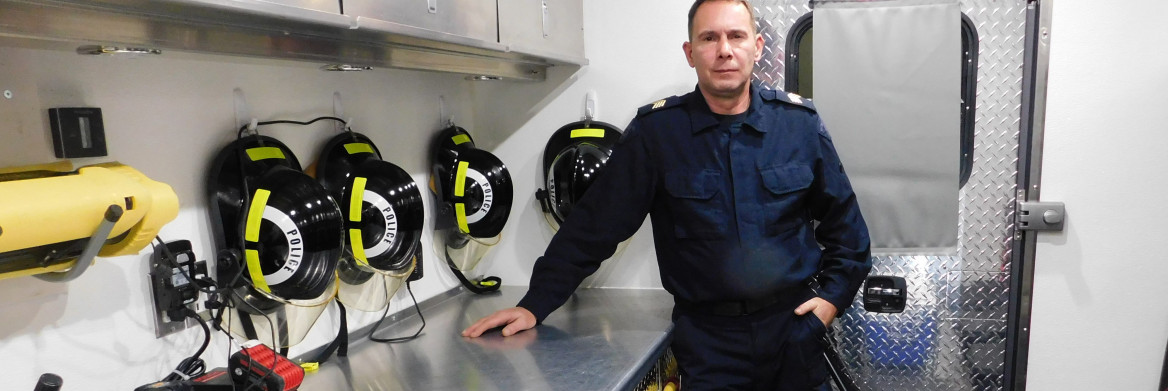Related link
Synthetic drug production is one of the highest threats to public safety. Organized crime groups produce and traffic drugs across the country fueling violence, addiction and death. S/Sgt. Derek Westwick has spent 11 years investigating illegal drug labs with the RCMP's Clandestine Laboratory Enforcement and Response (CLEAR) team in British Columbia. He spoke to Travis Poland about the team and its work.
What do the CLEAR teams do?
In British Columbia, CLEAR specifically targets organized crime groups involved in the illicit production of any synthetic drug and investigates the diversion of chemicals or equipment intended to be used to manufacture illicit drugs. On the enforcement side, we conduct project-based investigations and chemical diversion investigations. The CLEAR team in B.C. covers the entire province and Yukon, and we provide support services for investigating and dismantling clandestine labs. We also provide subject matter expertise and consultation for all law enforcement agencies in our jurisdiction.
What is a clandestine lab?
A clandestine drug laboratory is any illicit operation consisting of equipment and chemicals that could be used to produce a controlled drug or substance. An officer entering a clandestine drug laboratory must be certified through a clandestine laboratories investigators course and must have a valid clandestine laboratory investigators respiratory device certificate. The labs have been found in many different urban and rural settings including homes, apartments, townhouses, barns, warehouses and even businesses.
What are the dangers associated with the labs?
Clandestine drug laboratory enforcement actions are complicated by the presence of hazardous chemicals that may cause acute and chronic health problems. Safety concerns for police officers and the public are paramount when entering and conducting searches of the laboratories. Clandestine laboratories are being established in both urban and rural communities in an increasing prevalence and the dangers they pose can't be understated. Toxic and corrosive gases can be produced and released into the area and there's a risk of fires and explosions.
How do officers stay safe while in the field?
CLEAR teams all have chemical-rated suits, fire retardant clothing and respiratory protection equipment such as self-contained breathing apparatuses at our disposal. Additionally, CLEAR teams have instruments that can detect and monitor the air quality and identify toxic vapours. These instruments alert CLEAR investigators of the presence of explosive vapours, toxic vapours or poor air quality. With this information, the CLEAR safety officer assesses the hazards and will identify the level of personal protective equipment (PPE) required to ensure the health and safety of the officers working in the hot zone of the clandestine laboratory.
What kind of training do CLEAR officers receive?
It starts with a two-week clandestine laboratory investigators course at Canadian Police College or Ontario Police College. The course is available for any police officer and once they complete it, they're certified to wear the PPE and safety equipment to enter a clandestine lab to investigate and dismantle it. Officers posted to the CLEAR units full time receive further training to develop their skills and knowledge. CLEAR units receive advanced clandestine lab site-safety training, advanced PPE training and chemical recognition training.
What are the signs there's a clandestine lab somewhere nearby?
Some signs include an excessive purchase of chemicals, excessive amount of chemical containers at a location, laboratory equipment and unusual chemicals, and odours often described as strong solvents, ammonia-like, pungent or a sweet fragrance. Anyone who suspects there's clandestine lab activity or suspicious purchases should contact their local police and report it.
